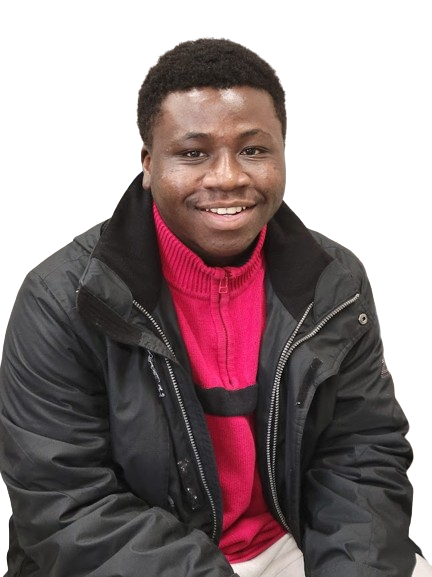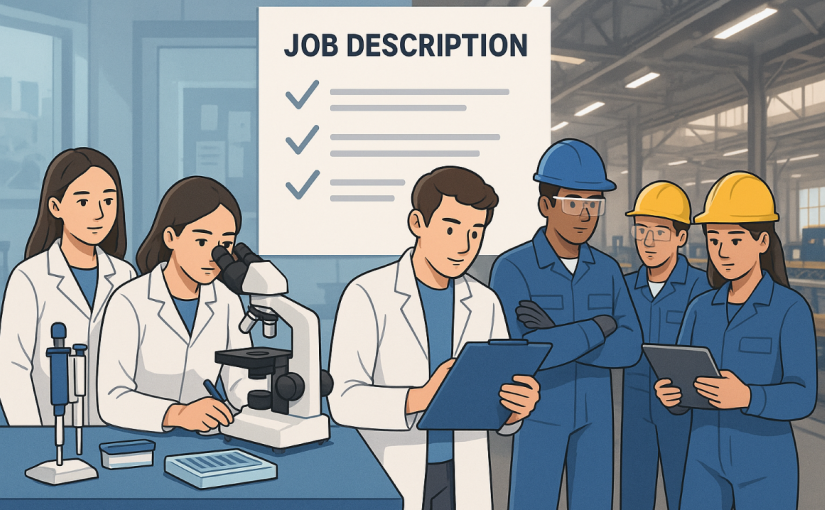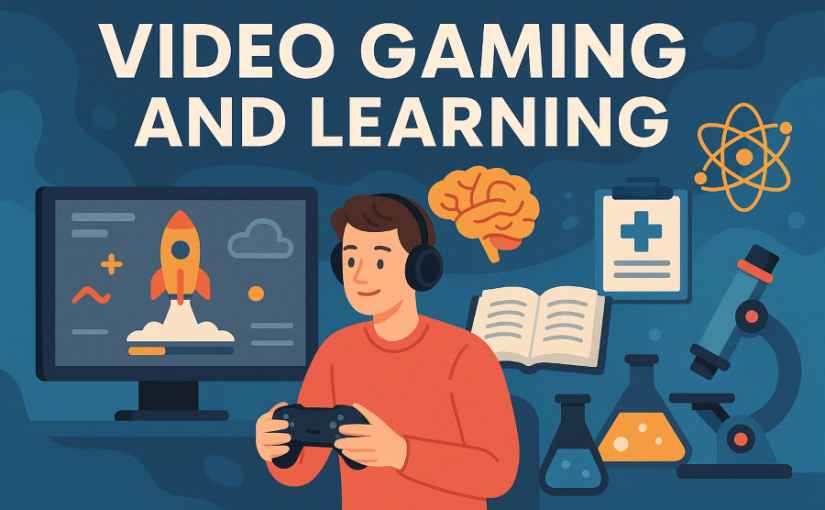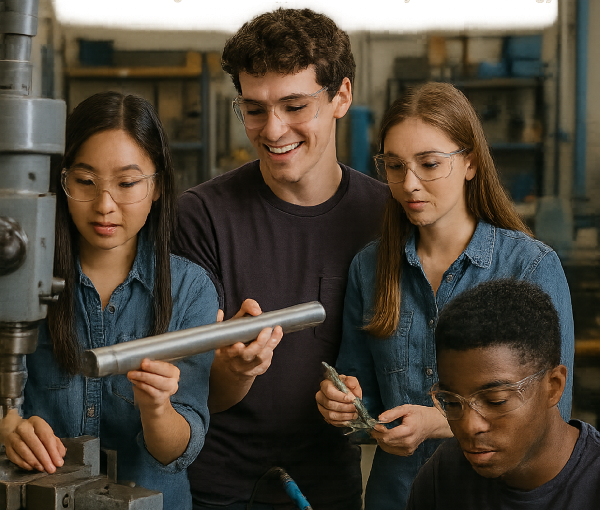If you’ve ever read a job posting and felt unsure about what exactly the employer wants – don’t worry, you’re not alone. Job descriptions can feel overwhelming, especially when you’re just starting out and trying to land your first internship, research role, or full-time job in science, healthcare, or any other field.
But here’s the good news: once you know how to break a job description down into key parts, you can tailor your resume, write stronger applications, and even walk into interviews with more confidence. This blog will walk you through the anatomy of a job description—what each part means and how to read between the lines.
📌 1. Start with the Job Title—and Don’t Judge Too Fast
The title gives you a quick snapshot, but it doesn’t tell the whole story. Titles like “Research Assistant,” “Lab Technician,” or “Program Intern” may sound similar, but responsibilities can vary widely across organizations. Click into the posting to see what it really involves.
🔬 Tip: In science or healthcare, a “Technician” might be doing hands-on lab work in one setting and mostly data entry in another. Read beyond the title!
🧭 2. Understand the Organization’s Mission
Often tucked into the first paragraph, the company or institution will share who they are and what they value. This is your chance to see whether their goals align with yours.
💡 Example: If you’re looking for impact-driven work, a hospital lab focusing on patient diagnostics might feel different from a biotech company developing commercial tools. Both are valid, but knowing the difference can guide your decision.
🔍 3. Highlight the Responsibilities Section
This is where the bulk of the day-to-day tasks are listed. Look for action words—“coordinate,” “analyze,” “assist,” “conduct,” “maintain”—and ask yourself: Have I done something similar in class, a student org, or a campus job?
✍️ Action Step: Copy the job duties into a document and underline verbs. Then jot down your experience next to each one. This gives you material for your resume and your cover letter.
🧪 4. Decode the Required vs. Preferred Qualifications
This section is gold. “Required” means the minimum you need; “preferred” means nice-to-have. Don’t get discouraged if you don’t check every box—employers often list their ideal candidate, not expecting perfection.
🧠 Pro Tip: If you meet about 70% of the requirements, it’s still worth applying. Focus on how your transferable skills—like time management, lab techniques, or data analysis—can meet their needs.
🎯 5. Pay Attention to Keywords (Especially for Resume Matching)
Many employers use software (Applicant Tracking Systems) to scan resumes. That’s why it helps to match key phrases from the job description in your resume and cover letter.
🔬 Example: If they say “pipetting experience” or “Western blotting,” and you’ve done that in a lab class, name it exactly like they did.
Use tools like Jobscan.co to compare your resume to the job post—especially helpful when applying for competitive roles.
❓ 6. Clarify Anything Unclear—and Research
If the description includes jargon or ambiguous phrases (“fast-paced environment,” “multidisciplinary approach”), don’t hesitate to look up the company’s recent projects, staff bios, or LinkedIn page. Understanding context can help you better prepare your application or interview responses.
🔬 Sample Job Description: Biology Research Assistant (Wet Lab Focus)
Position: Research Assistant – Molecular Biology Lab
Location: University Biomedical Research Center
Summary: Assist in laboratory experiments investigating gene expression in C. elegans and Drosophila.
Key Responsibilities:
- Prepare media and maintain C. elegans and Drosophila colonies
- Perform PCR, gel electrophoresis, and basic molecular cloning techniques
- Keep detailed lab notebooks and digital data logs
- Assist in analyzing microscopy images and fluorescence data
- Follow safety and waste disposal protocols in accordance with lab regulations
Qualifications:
- Background in biology, molecular biology, or biochemistry
- Hands-on experience with pipetting, PCR, or gel electrophoresis preferred
- Attention to detail and ability to follow multi-step protocols
- Ability to work both independently and collaboratively
🔍 How to Break It Down
📌 Job Title
The title “Research Assistant – Molecular Biology” already signals that this role involves experimental work at the bench. Keywords like gene expression, C. elegans, and PCR give you clues about the techniques and organisms you’ll encounter.
🧠 Responsibilities
These are direct cues for your resume. If you’ve done anything remotely similar in a course, independent study, or summer lab, highlight it!
✅ Matching Resume Bullets:
- Maintained C. elegans colonies and prepared NGM plates for daily transfers and imaging studies
- Conducted PCR and gel electrophoresis to confirm DNA constructs in gene expression experiments
- Recorded experimental results and troubleshooting notes in both paper and electronic lab notebooks
- Analyzed fluorescence microscopy images using ImageJ and recorded gene expression patterns
- Adhered to chemical safety protocols and waste disposal standards in BSL-1 lab settings
🧰 Qualifications
Don’t feel pressured to match everything perfectly. “Preferred” qualifications mean they’re nice to have—not mandatory.
💡 Example: If you haven’t done microscopy yet, but have done image analysis in a class project or used a dissecting microscope, mention that—and show you’re excited to learn.
✍️ Cover Letter Line:
“While I’ve not yet worked with fluorescence microscopy, I’ve used dissecting microscopes and completed a term project quantifying cell morphology, and I’m eager to build those imaging skills further.”
🎯 Pro Tips for Dissecting Any Job Description
- Tailor your cover letter to the lab’s techniques, goals, and research model.
- Copy the full job post into a Word or Google Doc.
- Underline all verbs in the responsibilities section.
- Match each verb with your own coursework, labs, or campus jobs.
- Write specific resume bullets that mirror the employer’s phrasing.
🎤 Final Thought: Every Job Description Is a Story
It’s not just a checklist—it’s a story of what the organization needs, and who they hope to find. When you learn to “read” it, you’re not just decoding requirements—you’re seeing if the opportunity aligns with your goals, skills, and future path.
Whether you’re looking to work in a hospital, research lab, nonprofit, or biotech company, dissecting job descriptions is a skill that can set you apart. Start practicing now, and you’ll build confidence with each application.

Dennis Boakye ’26 is a junior with a major in Neuroscience and a minor in Mathematics. He is also a co-president of the Neurolawrence Club and the Synthetic Biology Club, and the treasurer for the American Medical Student Association (AMSA, Lawrence Chapter) and the Black Student Union (BSU). Dennis is the current career peer educator for the Health and Medicinal Professions (HMP) and the Physical and Natural Sciences (PHN) career communities at Lawrence University. Connect with Dennis on LinkedIn.




